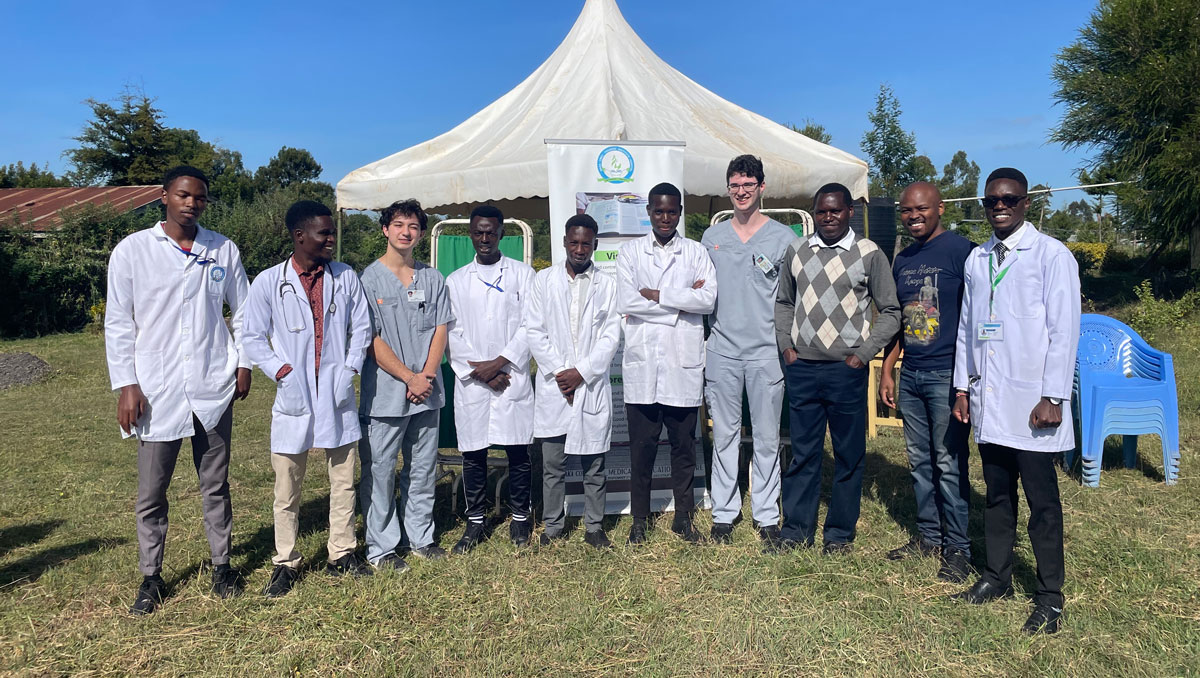
By Vivian DiSalvo (Class of 2026)
On a sunny day in Kenya, Jiro Greenberg-Oster (Class of 2026) sat in a hospital eating a bowl of ugali, which is essentially porridge. Though it’s worth only forty shillings, which equates to about 31 cents here in the US, ugali is what most Kenyans can afford. Greenberg-Oster and nine other University of Tennessee, Knoxville, College of Nursing students visited Kenya and immersed themselves in a new culture and different medical processes, leaving with a deep sense of gratitude and commitment to serve.
The students visited Nyeri, a rural county in Kenya, and spent their time doing clinical rotations with the WAKA School of Nursing. The partnership between the college and the Kenyan school sprung from a generous gift through Donor Advised Fund by loyal Nursing donors Poppy and Richard Buchanan. Greenberg-Oster saw how sustainable the hospital had to be in order to preserve resources. He viewed several different operations, including C-sections and orthopedic surgery.
“It was cool to see because, in the US, as a first-year student, you’re just shadowing. In Kenya, the first-year students are starting IVs, passing instruments in surgery, and helping with procedures,” says Greenberg-Oster.
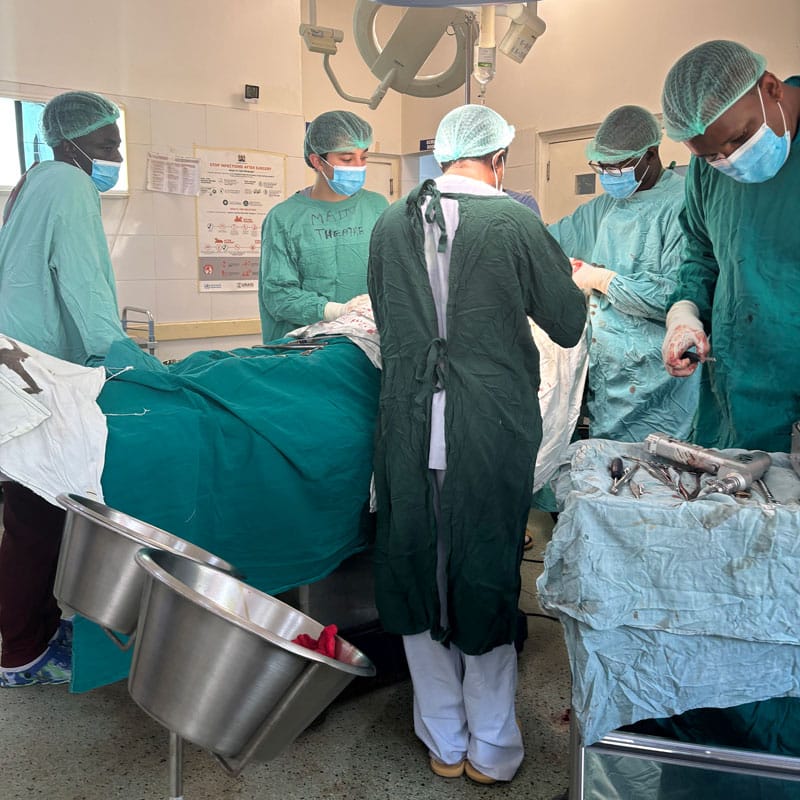
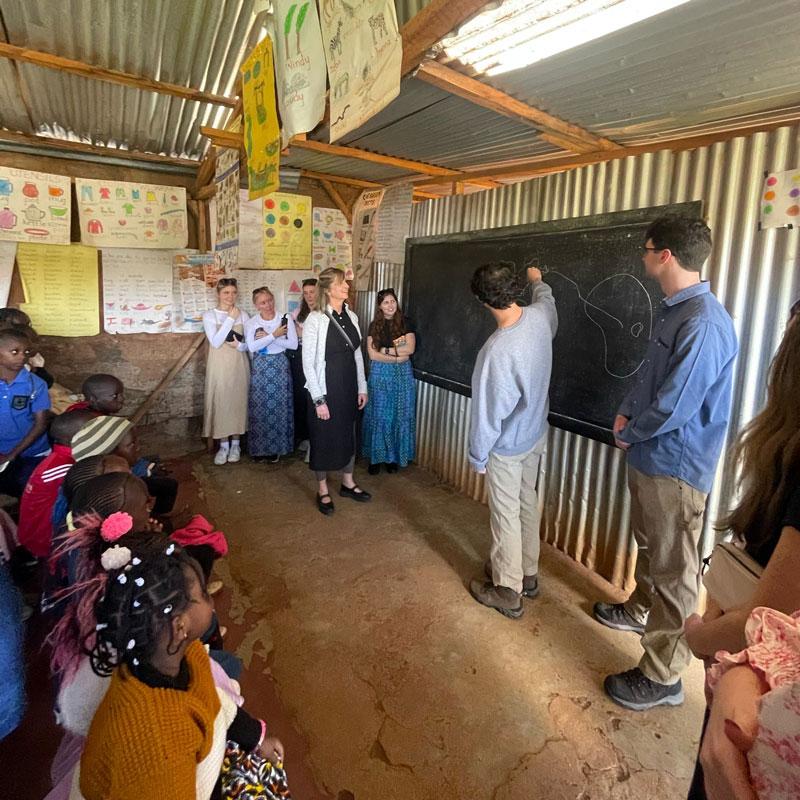
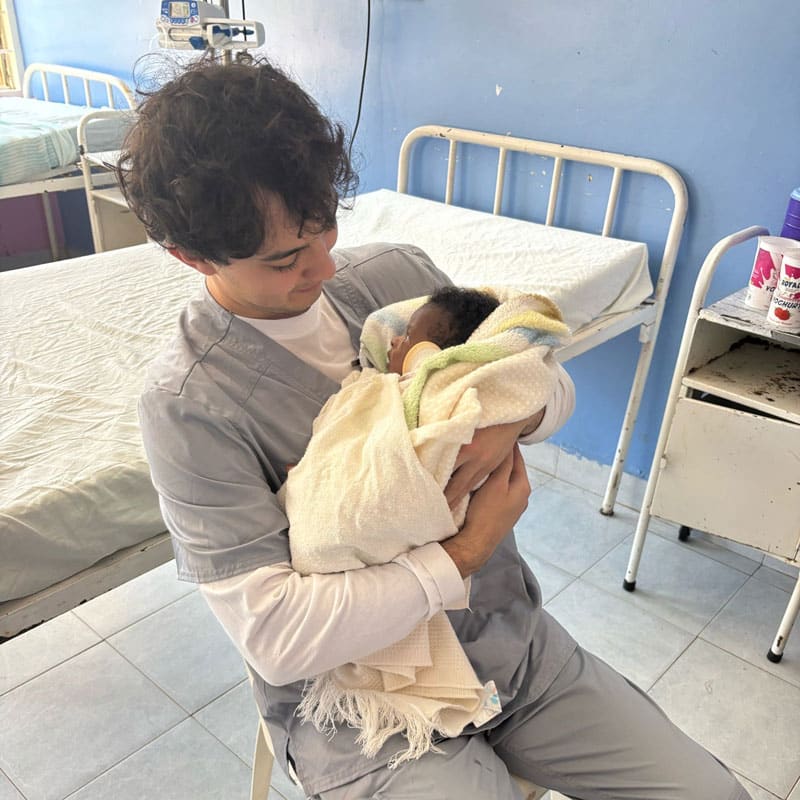
What Greenberg-Oster found particularly moving was noticing that, despite the communities they served being below the poverty line, the people he met appeared mostly content. To him, they seemed to enjoy what they have, even if they don’t have what most Americans consider basic necessities, such as air conditioning, dishwashers, or clean water.
“It just goes to show that money isn’t everything. It made me so grateful for what I do have,” says Greenberg-Oster. “One of my big takeaways was an obligation to give and serve those who aren’t as fortunate.”

When alumni give, it helps students like me receive an education and have a successful career, so that later down the line I can give to others too.”
Jiro Greenberg-Oster
This Kenya trip was made possible by Poppy and Richard Buchanan, Vanderbilt University graduates and medical professionals in Tennessee. Though they have since passed away, the legacy they left lives on in every generation of students the Kenya trip has touched. Not only did they help found the WAKA School of Nursing in Kenya, but they also carried the torch for generations of Volunteers like Greenberg-Oster who hope to make a difference like Poppy did in her nursing career.
In addition to the Kenya trip, Greenberg-Oster has also found UT’s Health Innovation Technology and Simulation Lab to be vital to his learning experience. The simulation allows students to perform procedures hands-on without consequences; they can freely make mistakes and learn from them without worrying about injuring a patient. It also gives students an understanding of the high stakes of health care, but with mitigated risk.
Not only is the simulation lab a great aid to those at UT, but it also serves as a resource to the entire state. The simulation lab allows UT to produce especially skilled workers in a high-priority field where more nurses are needed.
“These labs equip future nurses with the hands-on experience to respond effectively and confidently in diverse health care scenarios, ultimately ensuring Tennesseans receive high-quality, compassionate care,” says Susan Hébert, assistant dean of simulation. “By bridging the gap between theoretical knowledge and practical application, these simulations contribute significantly to a positive health care experience across the state.”
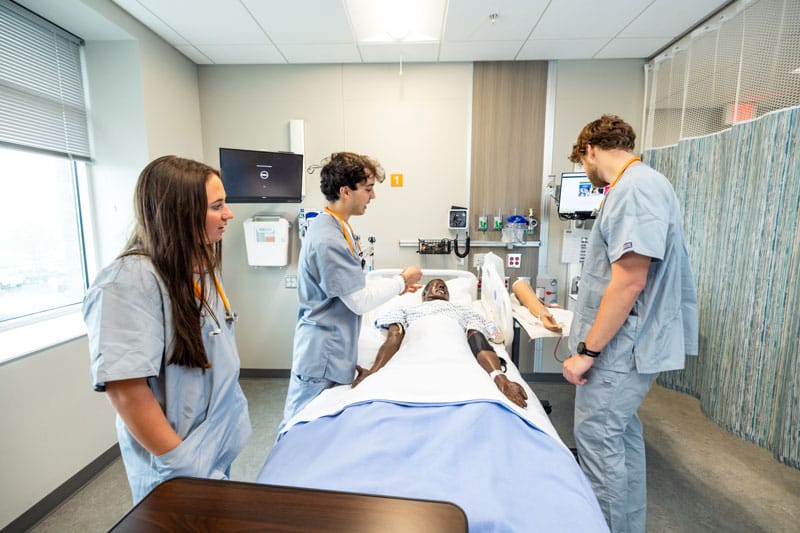
Alumni and donors who have made an investment in UT, and in the simulation lab, have created a ripple effect, investing in the education of students for a better state and a better world.
“When alumni give, it helps students like me receive an education and have a successful career, so that later down the line I can give to others too,” says Greenberg-Oster. “Money spans so far not just for students, but for the world.”
